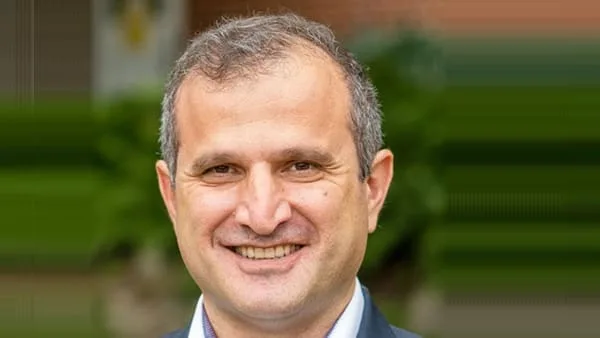
Biosim AI, founded by a professor at the University of Maryland in College Park, has closed on $12.25 million in its bid to commercialize technology to “enable and accelerate drug discovery at quantum accuracy.” So far, the company has raised $13 million, with investors including Armenia’s SmartGate VC, according to Crunchbase.
Armenian-born Garegin Papoian, Monroe Martin Professor at UMD’s Chemistry & Biochemistry and Institute for Physical Science and Technology, founded Biosim AI in 2020, raising a small pre-seed investment from his home country firm, SmartGate VC.
Still in Stealth
Years later, the company remains in stealth mode, with a sparsely-filled single-page website, with little information. “It will take hundreds of years to cure human diseases. We will accelerate this timeline,’ the company says on its home page. “Stay tuned.”
Papoian received a PhD in Quantum Chemistry from Cornell University in 1999, after completing his undergraduate studies at the Russian Academy of Sciences in Moscow. According to an Amazon site publishing information on its scientific research, Papoian has focused on “computational modeling of biological molecules like proteins and DNA,” and “protein structure prediction,” which can be used to design drugs.
“When you design a drug, you need to know what the target looks like,” Papoian said in an interview. “If you know that the target protein has a certain pocket, for example, you can develop a molecule that will fit nicely into that pocket.”
‘Proteins Are Key’
While identifying genes associated with diseases has become easier, the sequence of a gene doesn’t tell you what the protein expressed by it looks like, and experimental methods to determine the protein shape are lengthy and expensive, he added.
Under an AWS Machine Learning Research Award, Papoian is developing a system that can better simulate these proteins, and then fight diseases by turning on or off some proteins. According to Papoian, about a third of proteins in the human body, including many disease-causing ones, can be turned off to contain or cure certain medical conditions.
Growing up in Armenia, then a part of the Soviet Union, Papoian’s sterling performances in the country’s Science Olympiads shaped his career. He won first place in separate Olympiads in chemistry, physics, mathematics and biology. That initially earned him a passage to the Russian Academy of Sciences in Moscow, and later to the United States.
“Science Olympiads were a big reason why I got drawn into science, in particular to chemistry and physics,” he has said.
















